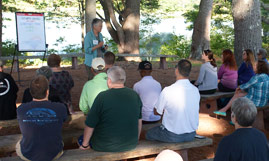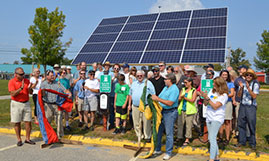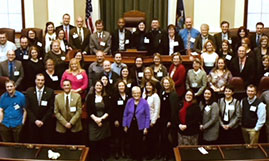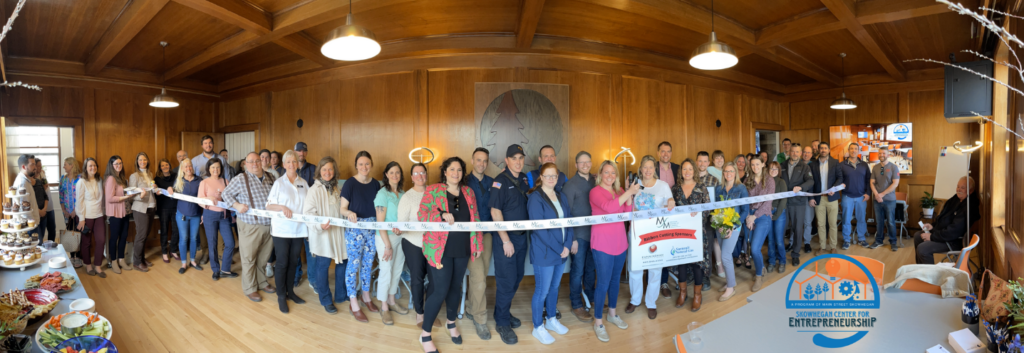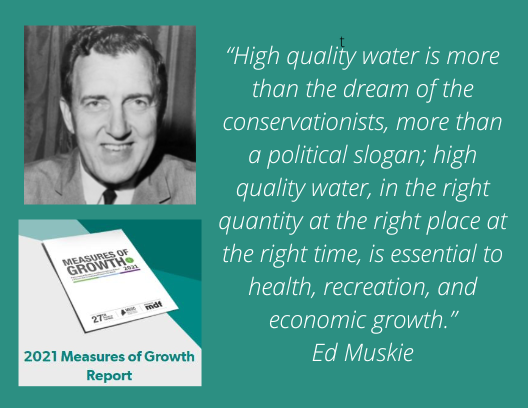Hallowell, Maine – November 16, 2022 – The nonpartisan Maine Economic Growth Council today released its 28h annual Measures of Growth Report, a comprehensive snapshot of how the state’s economy is performing relative to our long-term goals, to other states, and to the nation. The Report finds that overall, Maine continues to perform exceptionally well in terms of environment and safety. Wage growth and entrepreneurship were also areas of progress even as inflation, workforce shortages, and the lingering impact of COVID continue to challenge communities, businesses, and households, The Council noted that Maine’s quality of life and other enduring assets set the stage for additional investments to achieve economic growth, a more resilient economy in an uncertain global environment, and long-term and more equitable prosperity.
The Report also brings special focus to Maine’s particular challenges in workforce availability and participation, an urgent issue in every industry and region. This stems from years of demographic, economic, and social changes compounded by a global pandemic and calls for innovative responses if we are to build the workforce we need.
“This Report provides critical insight into Maine’s economy and workforce,” says Steve Von Vogt, Co-Chair of the Maine Economic Growth Council. “We must continue to harness Yankee ingenuity, innovation, and public-private partnerships to respond to the economic challenges posed by COVID, inflation, and climate change. To build the workforce we need, Maine business, community, and non-profit leaders of all races and ethnicities must continue to join forces to eradicate systemic inequities. We must work comprehensively: increase efforts to attract more working-age people from other states and countries, retain more of the young people born here, and help people of all ages, genders, abilities, races, and ethnicities to access the education and training they need to pursue the work and career of their choice, and to participate fully in our economy.”
In total, the 2022 Measures of Growth Report tracks 31 indicators that represent Maine’s assets and areas of challenge. To better reflect current circumstances, the report has a new measure: Mental and Behavioral Health, which acknowledges the growing impact of mental wellness challenges.
The Council assigns Gold Stars for significant progress in:
- Entrepreneurship – In 2020, the number of business starts exceeded closures by 9%, up from 4% in 2019.
- Greenhouse Gas Emissions – From 2018 to 2019, GHG (greenhouse gas) emissions fell 2%.
- Safety – Maine’s crime rate dropped another 7% in 2020 and is now 46% below the national average.
- Wages – In 2021, average wages rose 0.5% after adjusting for inflation. Maine made significant progress compared to peer states.
- Water Quality – In 2022, Maine maintained its excellent water quality rating – far above the U.S. average.
The Council assigns Red Flags for needed attention to:
- Cost of Energy – The price of industrial electricity rose 10% in 2021, mirroring increases across New England.
- Cost of Health Care – Health care expenditures fell 0.4% in 2021 but remain an ongoing challenge.
- Housing Affordability – Home ownership affordability got much worse in 2021, but the full index (including rentals) was not available at time of publication.
- Labor Force Participation – In 2021, 60% of Maine adults were in the labor force —unchanged since 2020 and below the U.S. average.
- Mental and Behavioral Health – In 2019-2020, the percentage of children with a mental and/or behavioral condition rose over 2%.
- Research and Development – In 2019, Maine’s R&D spending rose from 0.8% to 1.0% of GDP (Gross Domestic Product).
“We are encouraged by the rise in wages over the past two years, even after adjusting for inflation,” says State Senator and Council Co-Chair James Dill (D-Penobscot). “This comes after a decade of lagging wages and Maine is now surpassing our comparison states. This is a multi-year trend which sends a strong signal about the pace and scope of Maine’s recovery. However, it is tempered by the reality that wages are barely keeping up with inflation, and by the persistent income disparities between Maine’s white households and those of BIPOC (Black, Indigenous, People of Color) and Latino or Hispanic Mainers), and the gap between the income of women and their male counterparts.”
The report also highlighted important gaps in R&D investment, cost of doing business, and housing affordability. “The Measures of Growth annual report has long provided valuable information about what we are doing right, where we need to improve, and the trends of progress or decline over time,” says Yellow Light Breen, MDF’s President and CEO. “These indicators reinforce that talent, innovation, and infrastructure must be the focus for strategic investment – while also maintaining public health, a clean environment, and vibrant communities. We look forward to the opportunity to work with policymakers, businesses, and community leaders to continue building a Maine economy that is inclusive and sustainable – as we did in leveraging these insights to inform the 2022 Making Maine Work platform released by MDF, the State Chamber, and EducateMaine.”
The Maine Economic Growth Council takes a nonpartisan, data-driven approach to presenting an unbiased picture of Maine’s economy and well-being. Measures of Growth is designed to be a resource for policy and decision makers at all levels, helping them to focus their efforts and understand the connections between the key issues affecting the state. The Council is administered by the Maine Development Foundation (MDF). Council members are jointly appointed by the Governor, Senate President, and Speaker of the House, and represent a broad and diverse cross-section of Maine’s key constituencies.
Click here to dig into the data through our interactive Measures of Growth web section
Click here to read the Full Report
Click here to read the Executive Summary


